Latinx Files: Title 42 is out, Florida’s SB 1718 is in
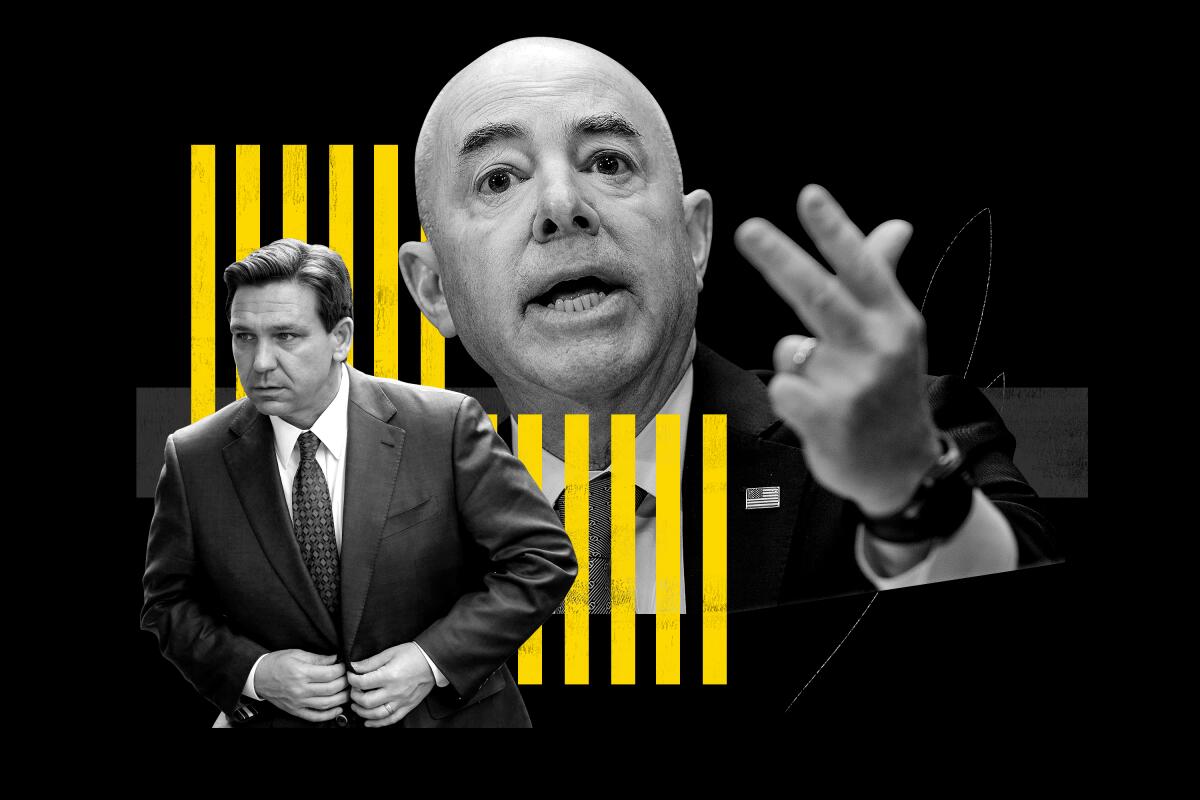
- Share via
Hi folks, it’s Fidel. I’m off this week so I’ve asked Carlos De Loera to fill in for me! Carlos is a Reporting Fellow at the L.A. Times who has covered sports, entertainment and breaking news. I’ll be back next week! Carlos, take it away!
Title 42 ended last Thursday. The decades-old measure invoked by former President Trump in 2020 allowed border officials to immediately expel asylum seekers and other migrants to Mexico under the guise of COVID-19 prevention.
Republican politicians loudly speculated that the policy’s end would lead to more migrants than usual crossing the border, but, as my colleague Hamed Aleaziz reported this week, U.S. officials claim fewer have crossed in the week since the restriction lifted.
In a statement directed toward migrants last week, Homeland Security Secretary Alejandro Mayorkas made clear that the “border is not open” and that law enforcement presence will remain high. He also noted that those who do not use “available lawful pathways to enter the U.S.” will receive a minimum five-year ban if they try to reenter, and potential criminal prosecution.
DeSantis signs a new anti-migrant law in Florida
In an attempt to capitalize on Title 42’s termination and to target undocumented migrants, Florida Gov. Ron DeSantis signed into law SB 1718 last week. The bill, which will take effect beginning July 1, requires hospitals to collect and report immigration status information from patients; criminalizes Florida residents who shelter, support or provide transportation to undocumented immigrants; requires employers to use E-Verify to ensure workers are permitted to work in the U.S.; provides funds to the state’s “Unauthorized Aliens Transport Program” to relocate undocumented immigrants; and authorizes law enforcement’s use of random checks of businesses to verify compliance.
Certain aspects of the bill do not add anything new to state or federal law. Using E-Verify to authorize citizenship, for example, has been required in the state for years. Florida also already has a program that displaces undocumented immigrants. But SB 1718’s passing is a clear move to intimidate the state’s substantial undocumented population and to double-down on enforcement measures.
Migrant truck drivers threaten a Florida boycott
Now workers from the agricultural, trucking and construction industries are calling for action against the new law.
Independent journalist Arturo Dominguez tweeted on Friday, “Spanish language social media has exploded with Latino truck drivers calling for a boycott and refusing to take shipments into Florida. Things are about to get interesting.”
Dominguez also assembled a list of TikTok videos that supported an online trend of Latinx truckers voicing support for a boycott of Florida.
The Latinx experience chronicled
Get the Latinx Files newsletter for stories that capture the multitudes within our communities.
You may occasionally receive promotional content from the Los Angeles Times.
“There are lines and lines of trucks here, if we join together and say, ‘we will not be going to Florida,’ let’s see how things will be able to arrive in Florida,” user @elarracadas91.1 said. “If we don’t take anything to Florida, tell me what they’ll have. Let’s see what [DeSantis] will do.”
In another video, a trucker echoed the first video’s call to not make deliveries in Florida, adding, “Just like we supported [Cuban trucker Rogel Aguilera-Mederos], it’s now time to show support for immigrants. It doesn’t cost us anything to support them.”
(Truckers across the country boycotted Colorado after Aguilera-Mederos was initially sentenced to 110 years in prison after being involved in a crash in his truck that resulted in four deaths in 2019. His sentence has since been reduced to 10 years.)
Rep. Alexandria Ocasio-Cortez tweeted Dominguez’s thread to point out how the truckers’ potential backlash is warranted.
“My truck will not be going to Florida at all,”Jose Quintero, an independent trucker from Bakersfield, said in a now-popular TikTok video. “What they’re doing to our brothers and sisters out there is not fair.”
In a conversation with The Times, Quintero called SB 1718 “a bit extremely harsh” given that Florida’s workforce relies on over 1.6 million noncitizen workers. He made special note of the cruelty of the clause that mentions penalties for people who shelter or transport migrants.
“A few buddies of mine said that they’re not going to be going over there,” Quintero claimed. “There’s plenty other states to deliver to.”
He added that he and several others he knows are able to self-impose a boycott because they are independent contractors who own their vehicles.
“If you work for a big company, you don’t have that [option], they pretty much point and you have to go and if not, you have to exit their trucks and they’ll replace you with somebody who will listen,” he said.
Joe Rajkovacz, director of government affairs for the Western States Trucking Assn., told The Times that while he is aware of the online traction for a boycott, he has yet to see significant real-life effects in the industry.
“It’s definitely an online thing. And that’s not unusual anymore,” he said. Later adding, “We’re not insensitive to the situation — half our members are Latinos, first-generation.”
It’s not just truck drivers
Quintero is optimistic that in the next few weeks the calls for a boycott will reach a larger audience and help the movement go from mostly online to out on the roads.
Consider subscribing to the Los Angeles Times
Your support helps us deliver the news that matters most. Become a subscriber.
A CBS Miami report noted that construction workers felt on edge about SB 1718, with workers not showing up at job sites due to the fear of being deported.
Other videos online claim to show spoiled produce in Florida farm fields that went bad because immigrant workers feared the effects of the new bill.
Videos of the worker-less fields mirror what happened in 2011 with Alabama’s HB 56. The bill required police officers to demand proof of citizenship or residency during routine traffic stops, prohibited people from giving rides to undocumented immigrants, required school officials to check the immigration status of students and forbade employers from attempting to hire undocumented workers.
Because of this bill many undocumented immigrants decided not to show up for work in the fields or other industries and some even pulled their children out of school for an added layer of safety.
According to a report by the University of Alabama, the resulting loss in work from field laborers reduced the state’s GDP by billions of dollars.
What lies ahead for Florida is unknown, but undocumented immigrants will make their presence, or lack thereof, felt as this new bill comes into effect.
And now for something a little different...
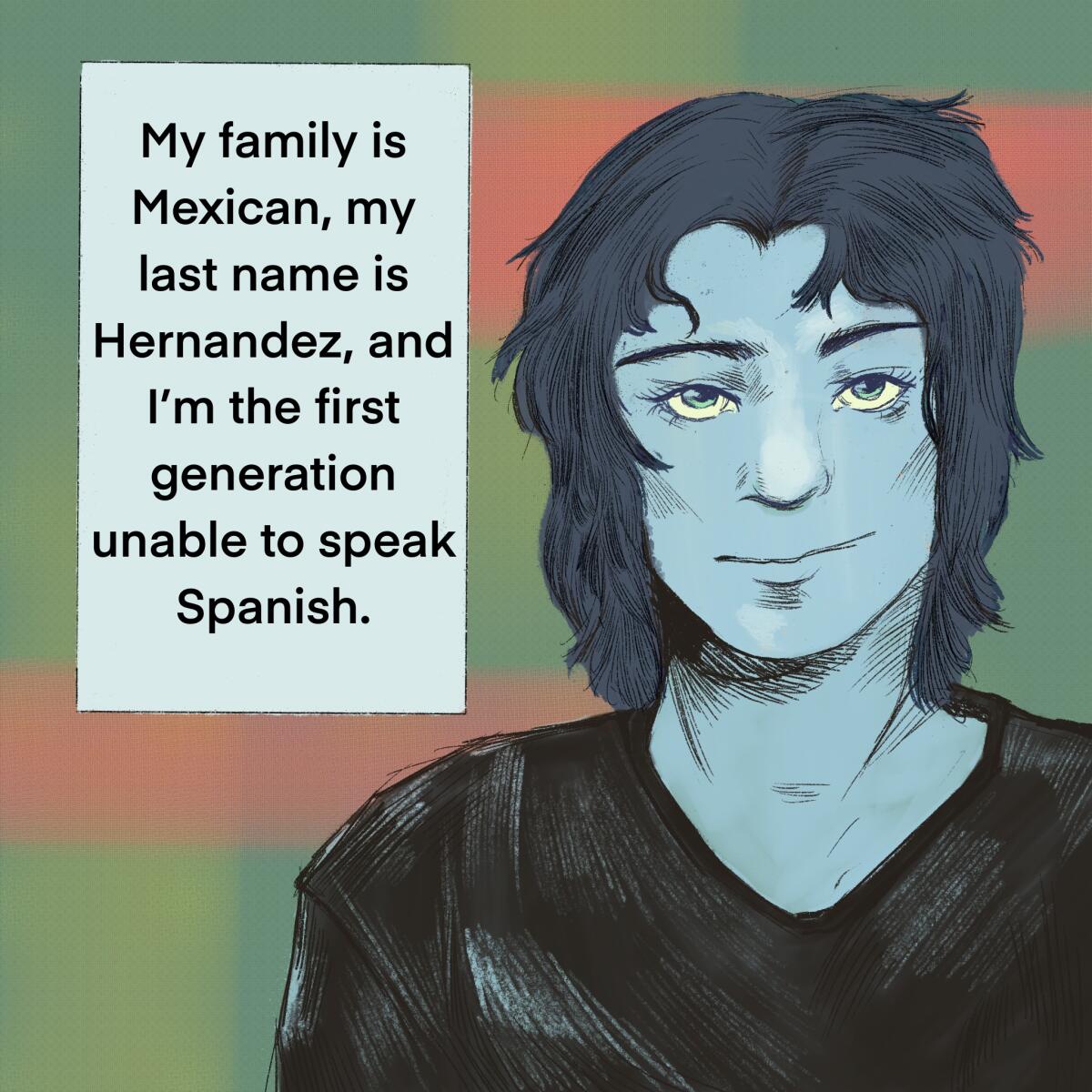
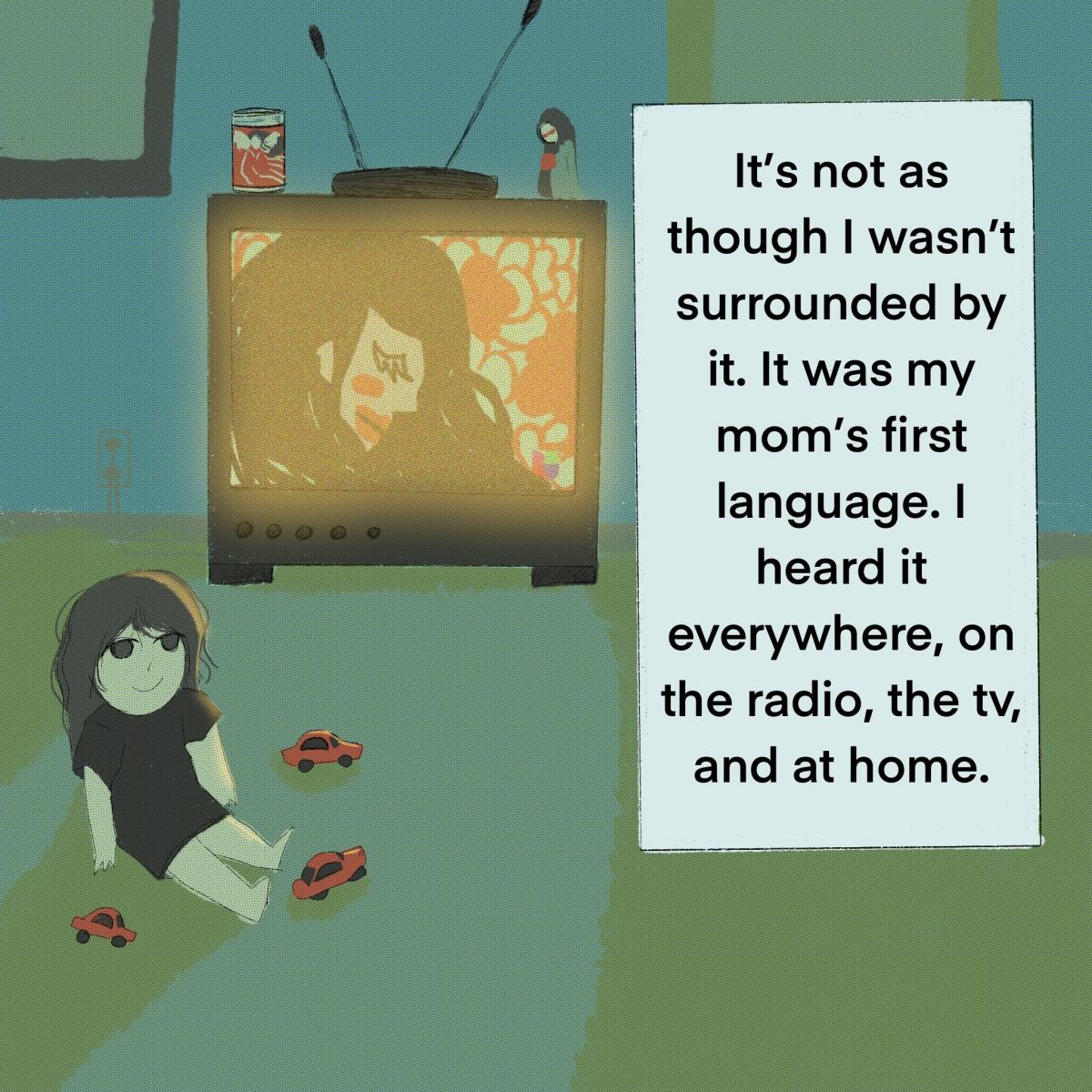
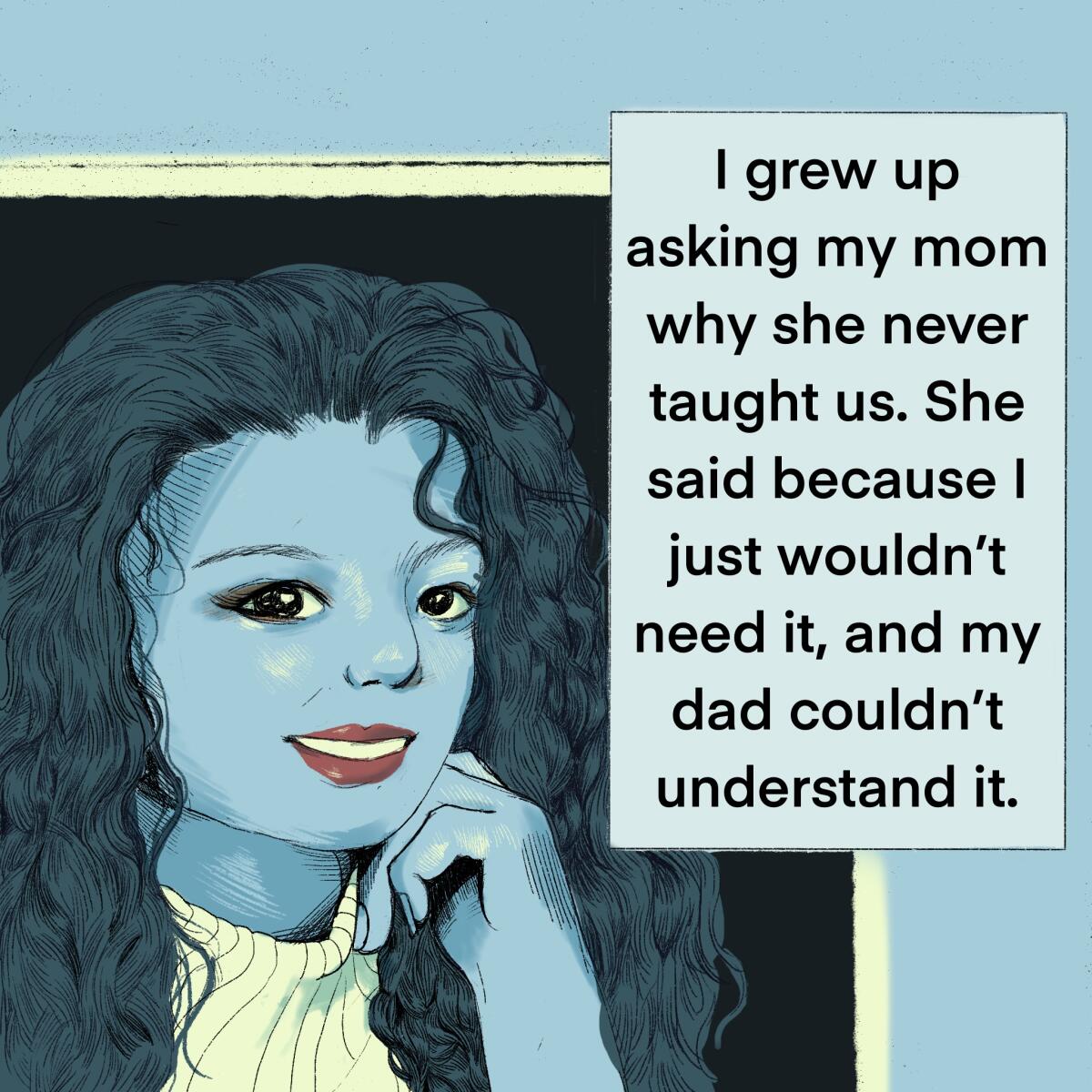
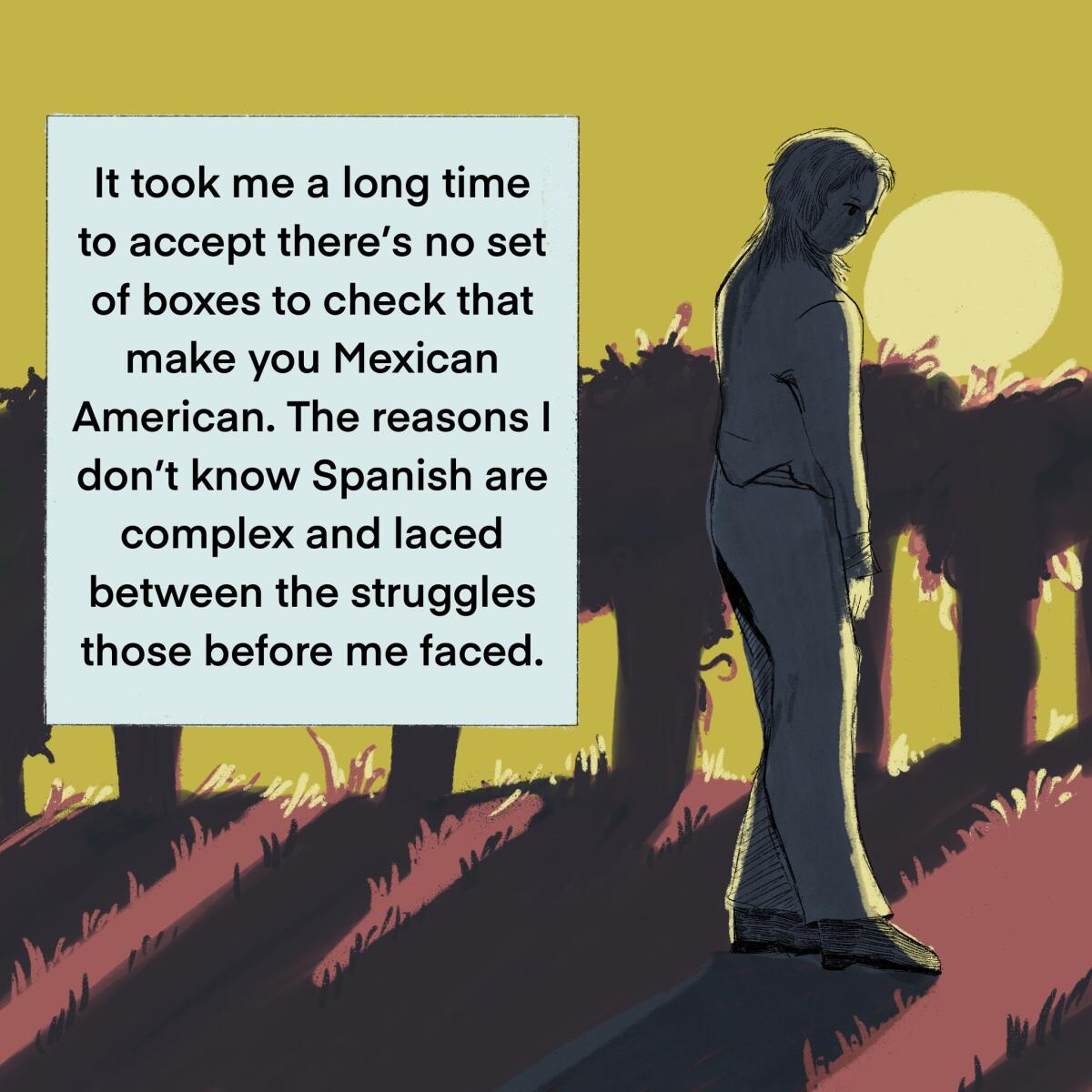

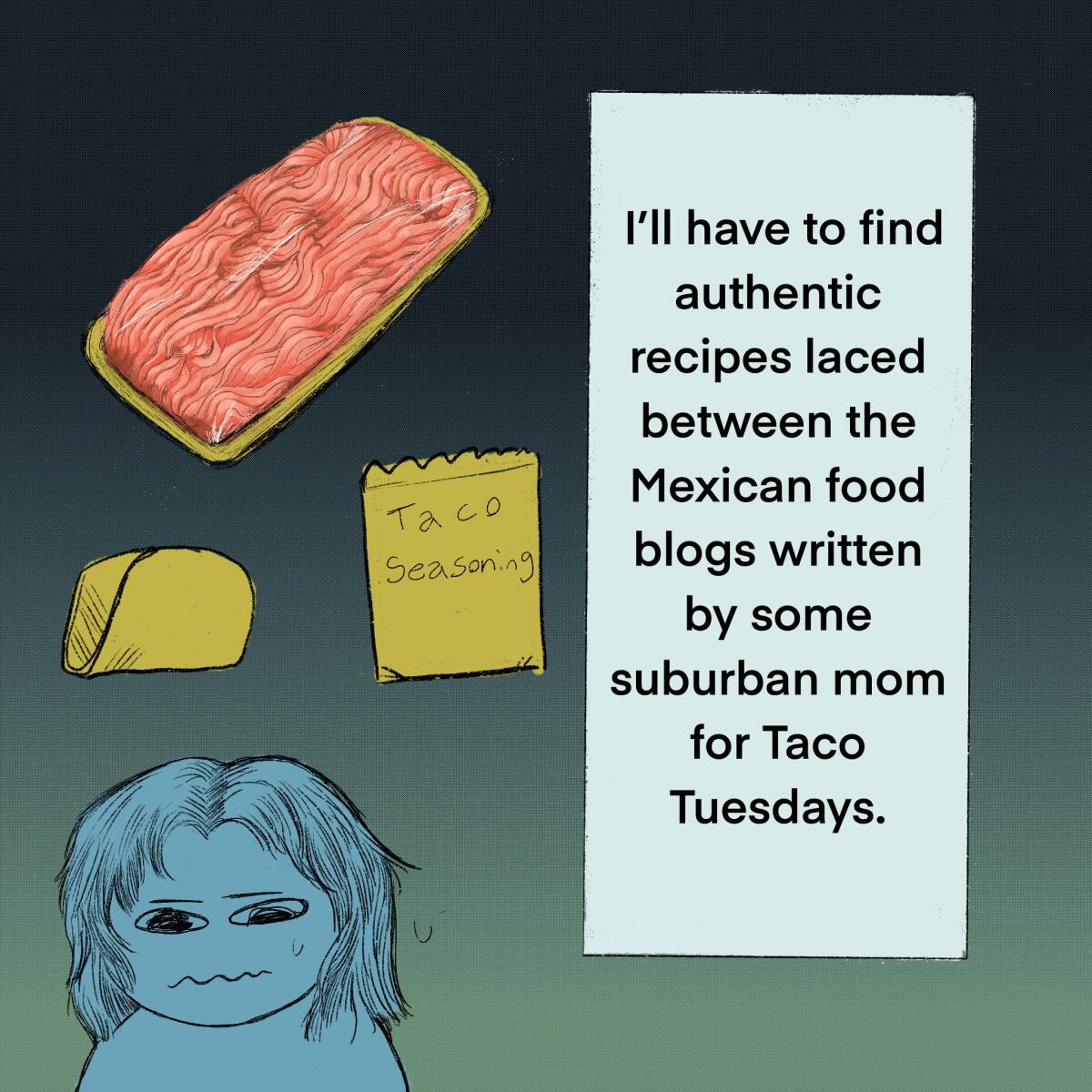
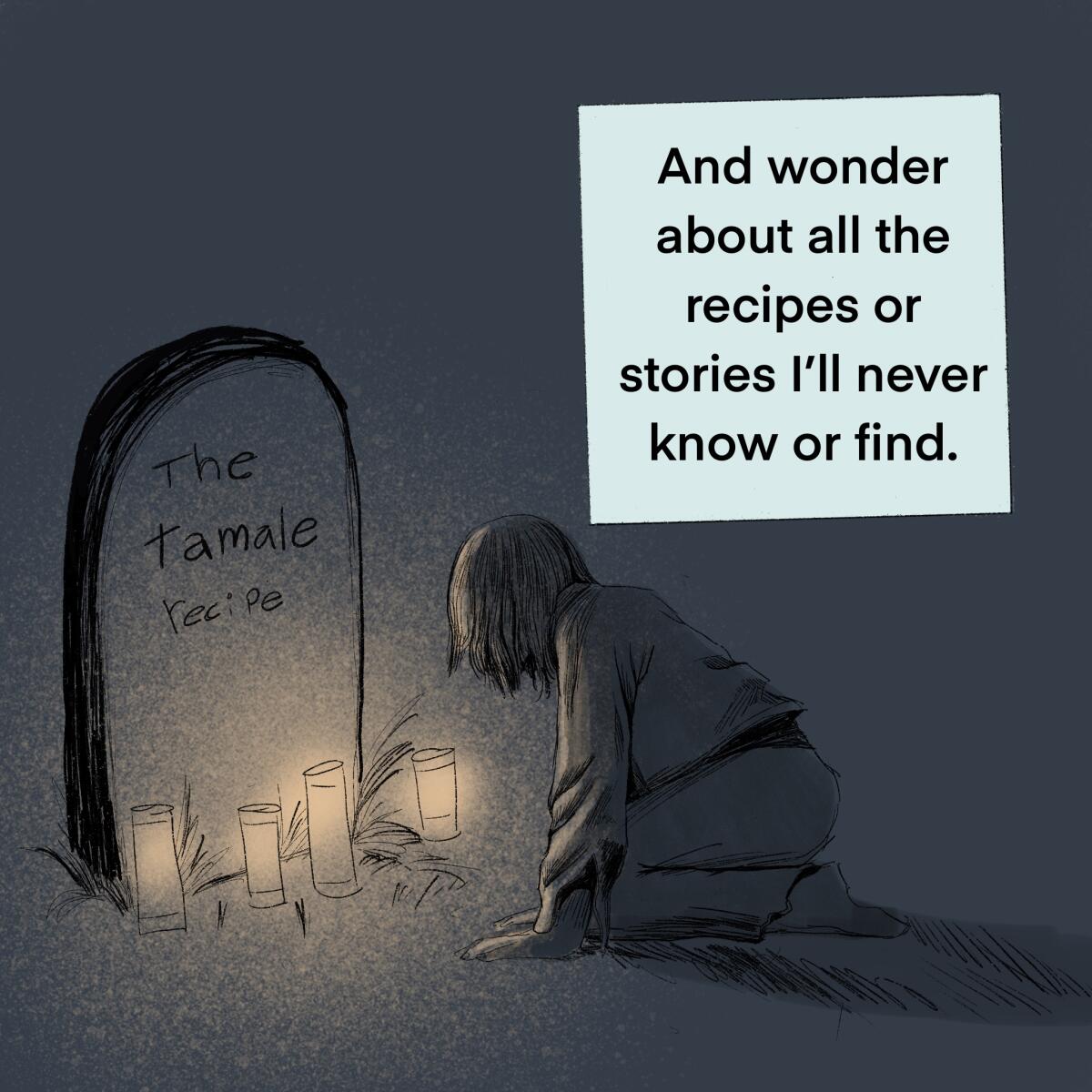

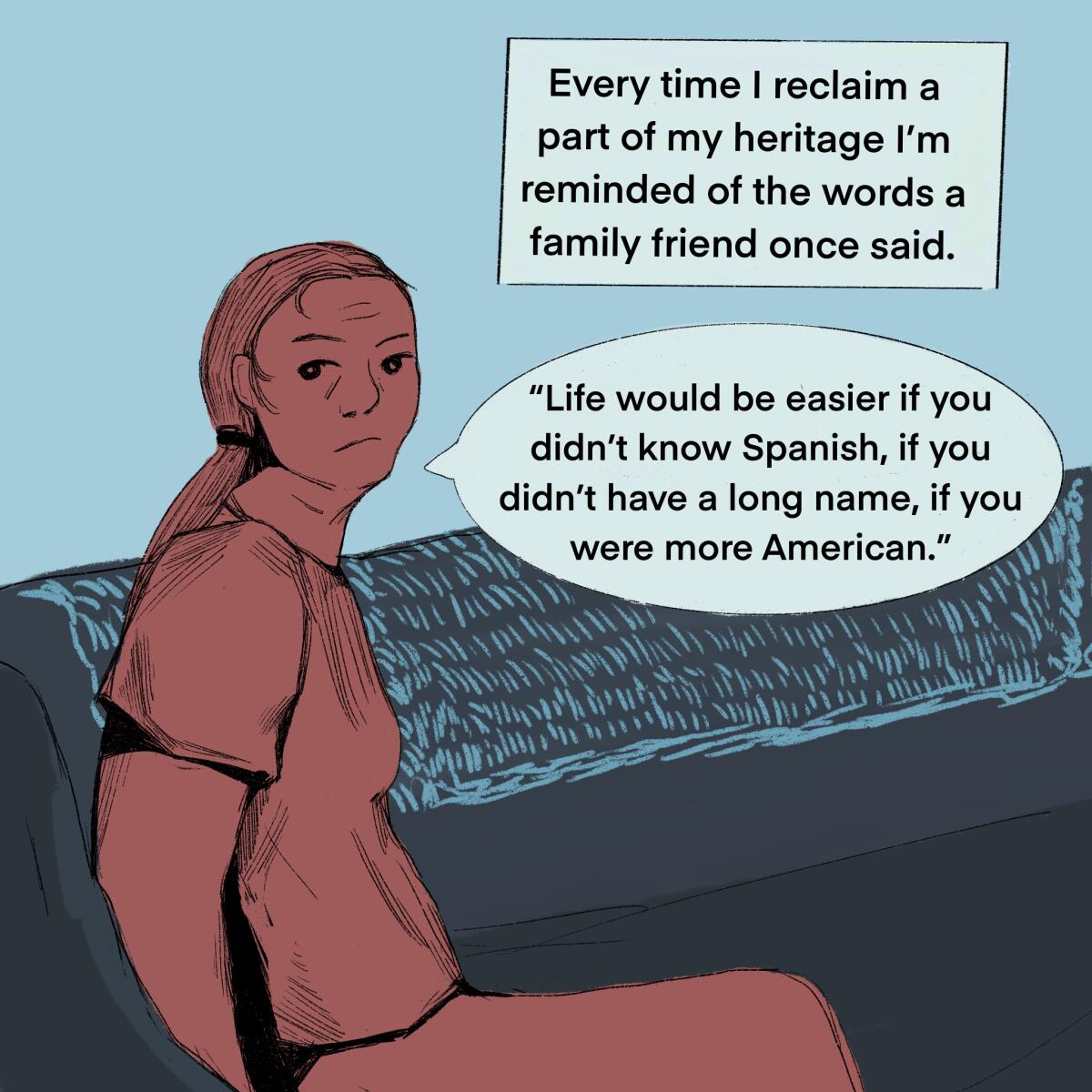
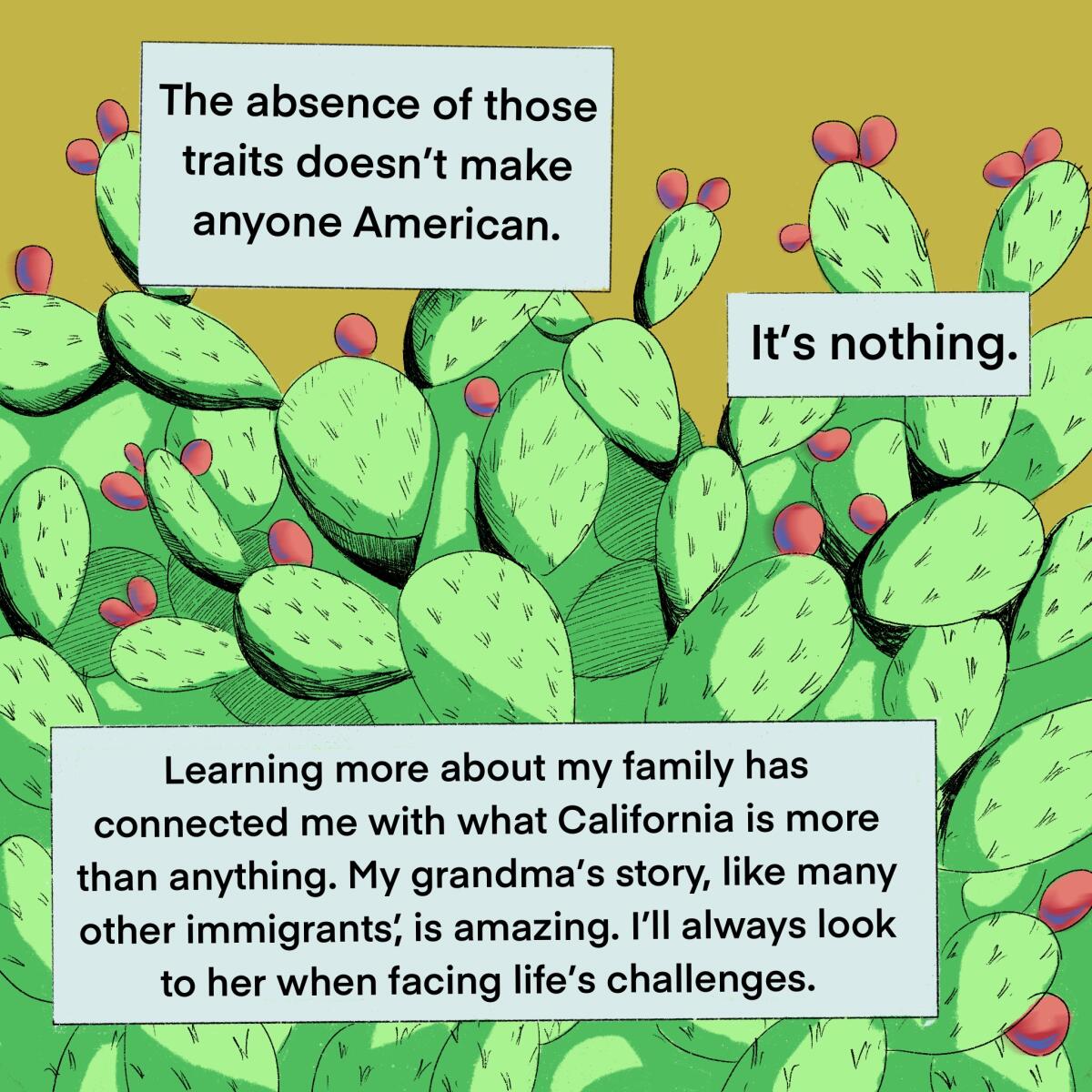
Devin Hernandez-Horne is an illustrator originally from Fresno. They make work exploring identity and our relationship with geography.
“For this comic I wanted to write about my experience as a third-gen American. Generations who have lived in America all their life can relate to feeling culturally whitewashed. Once you dive into American history or reflect on your own lived experiences, you’ll know the reasons for that happening. Luckily, culture is something you can choose to engage with and learn from. If you want to, it’s there waiting for you.”
Are you a Latinx artist? We want your help telling our stories. Send us your pitches for illustrations, comics, GIFs and more! Email our art director at martina.ibanezbaldor@latimes.com.
The Latinx experience chronicled
Get the Latinx Files newsletter for stories that capture the multitudes within our communities.
You may occasionally receive promotional content from the Los Angeles Times.



